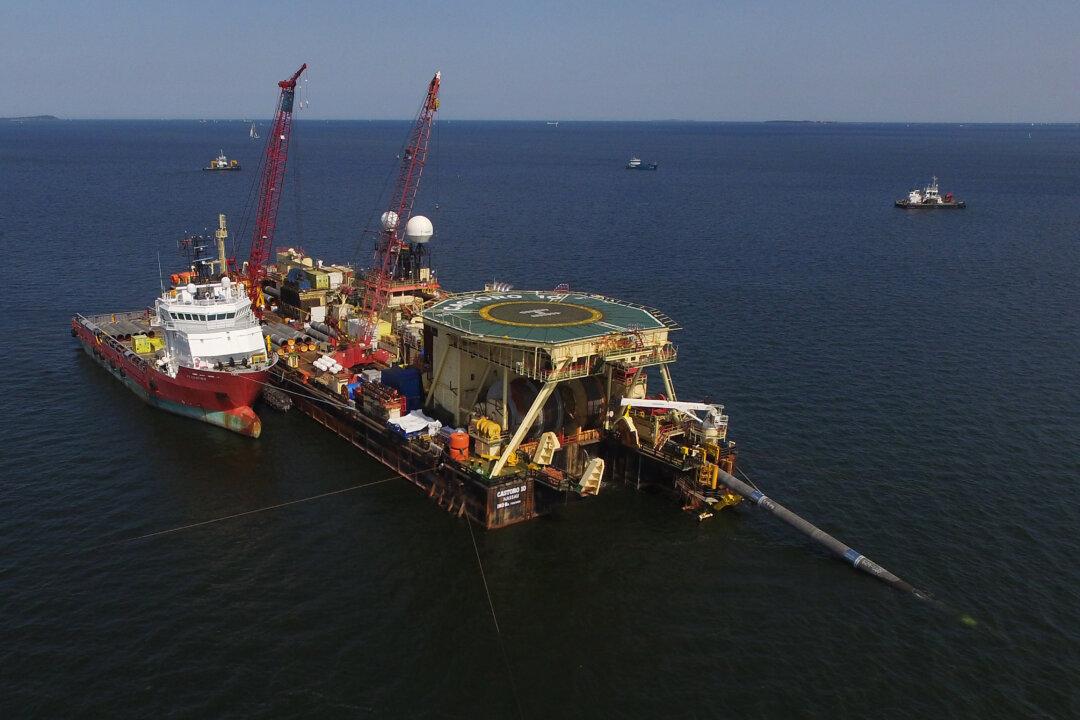Attempts by Western governments to transition away from hydrocarbons is creating instability, according to a new policy paper from the Macdonald-Laurier Institute (MLI) evaluating efforts by North America and Europe to curtail fossil fuel use through decarbonization.

The Castoro 10 pipelay vessel lays concrete-coated pipe for the Nord Stream 2 gas pipeline onto the seabed of the Baltic Sea near Lubmin, Germany, on Aug. 16, 2018. Germany turned away from the pipeline which would have supplied Russian gas after Moscow's invasion of Ukraine in February 2022. Sean Gallup/Getty Images
|Updated:




